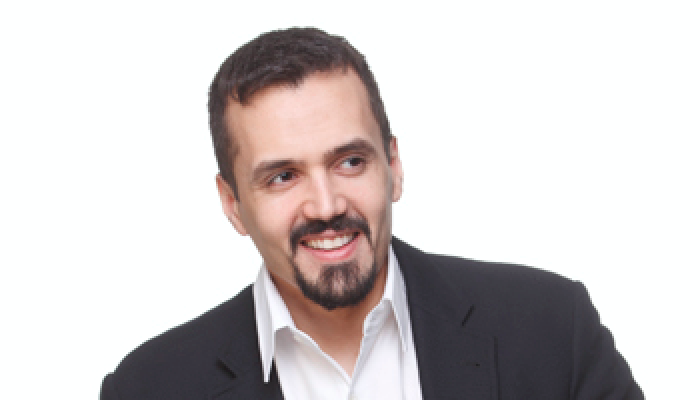
E-International Relations (E-IR) was founded 10 years ago this week. During that time we have interviewed over 150 academics, policy-makers and journalists. To celebrate E-IR’s 10th anniversary we asked some of our existing interviewees two further questions reflecting on the last decade in International Relations.
Dr HA Hellyer is a non-resident Senior Fellow at the RH Centre for the Middle East at the Atlantic Council in DC and Associate Fellow in International Security Studies at the Royal United Services Institute in London. Some of his publications include Muslims of Europe: the ‘Other’ Europeans, Engagement with the Muslim Community and Counter-Terrorism: British Lessons for the West, and The Chance for Change in the Arab World: Egypt’s Uprising. His most recent book is A Revolution Undone: Egypt’s Road Beyond Revolt. Dr Hellyer answered questions on contemporary Islamist politics, relations between European states and their Muslim populations, and the Egyptian revolution of 2011 in an interview with E-IR in 2015.
What changes have you seen in International Relations or your field over the last 10 years?
Ten years ago, it was 2007 – and for me, the most striking things about my fields of study at the time had to do with two things. Within the Arab world, at least from my vantage point, there was little prospect for change or development in the basis social contract of Arab states. Indeed, I didn’t give it much thought at all – and the overall dynamic seemed rather stagnant. When it came to my other primary field of study, which relates to Western Muslim communities, the situation was rather different – it was a couple of years after the 7th of July bombings in the UK, and the sense of ‘Other’ising the Muslims of Europe and the West more generally was more and more pronounced. The securitisation of them in public discourse was concerning, but it was also clearly deeply connected to a long history within the West, and that did not simply begin in 2005 or post 9/11.
Ten years on, of course, many things have changed. The situation in the Arab world is not stagnant in the same way, and a lot has happened. Indeed, I wrote in my last book, A Revolution Undone, what I lived through in Egypt alone during the period from 2011-2014, was a wealth of experience that was unmatched by perhaps ten years or more in the UK, where I had lived and worked previous to the time. When it comes to Europe, the securitisation has become solidified, and the ‘Othering’ of Muslim Western communities at home – and not just simply Muslim communities abroad – is deeply rooted. Muslim community organisations have been unable to keep up – and while American Muslim communities in 2007 didn’t think they would be affected in the same way at all, we see ten years later that most certainly that’s no longer the case. On the contrary – Muslim American communities have much to learn from their European counterparts in terms of experience. Islamophobia and anti-Muslim sentiment is increasingly ‘racialised’, and the phenomenon of anti-Muslim sentiment in particular is viciously on the upswing – and at the same time, Muslim Westerners have produced a number of figures that are ignoring that, pushing against it, and helping to establish that if you want a West where the Muslims are constantly ‘the Other’, it’s not something you’re going to get without giving up on a genuinely pluralistic liberal West.
There are some disturbing lessons that I learned myself vis-à-vis the way we look at the Arab world in the past decade. I had hoped post 2011, we would all learn to engage in a much more nuanced fashion vis-à-vis the Arab world; Muslims, Islam, Islamist political parties, autocracy. Alas, particularly post 2013, following the end of the Morsi presidency and the military takeover in Egypt, so much of the flaws and lack of nuance that existed in discussions pre-2011 returned with a vengeance. That related to how we saw the Arab world (not ‘ready’, or so it is claimed, for pluralism or political freedom, or indeed fundamental rights), to Islam (far too often reduced to what political Islamists would tell us), political Islamists (who are reduced to either being al-Qa’eda-like or the Arab-Muslim versions of the Christian Democrats, which dramatically oversimplifies beyond all utility) and so forth. We still fail, by and large, to see this region as a place where its own stories can be told and heard without constantly falling into our own Western prejudices of what those stories should be – or in relation to what we consider to be our security paradigms for the region. It’s parochial at best, and a bigotry of low expectations extremely often, and just out and out racism at worst. We have a lot to learn – but we also have a lot of people – perhaps more than ever – who push back against all of this.
Finally, and this perhaps cuts across the board – the partisanship in the Arab world and Muslim communities of the West is sharper than I think I have ever seen. The pro-MB, pro-Qatar, pro-Turkey axis is well and truly established; and the pro-Sisi, pro-UAE and pro-Saudi axis is also well and truly established. The way in which so many feel they must fall into one of these groupings in extraordinary, and it colours analysis and feelings of solidarity in ways I have not witnessed so sharply before. It’s too early to speak of a truly independent, non-aligned movement in this regard – too few seem to see the need – but to my mind, it’s vital in order to be extricated from so many of the problems.